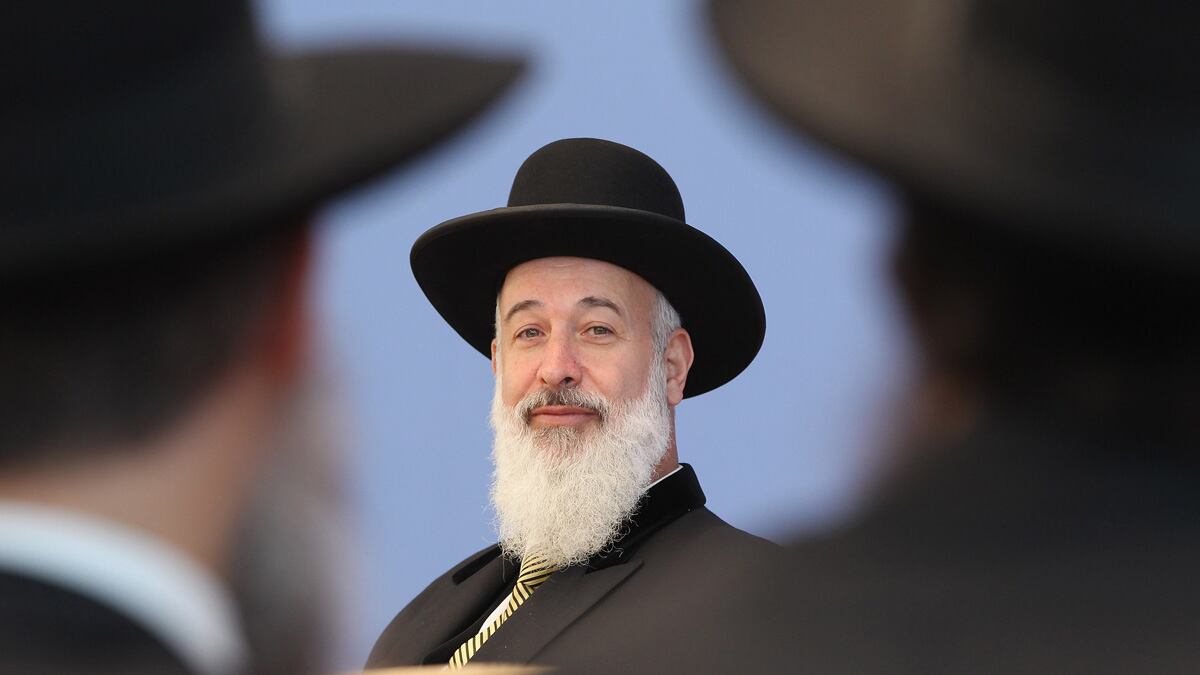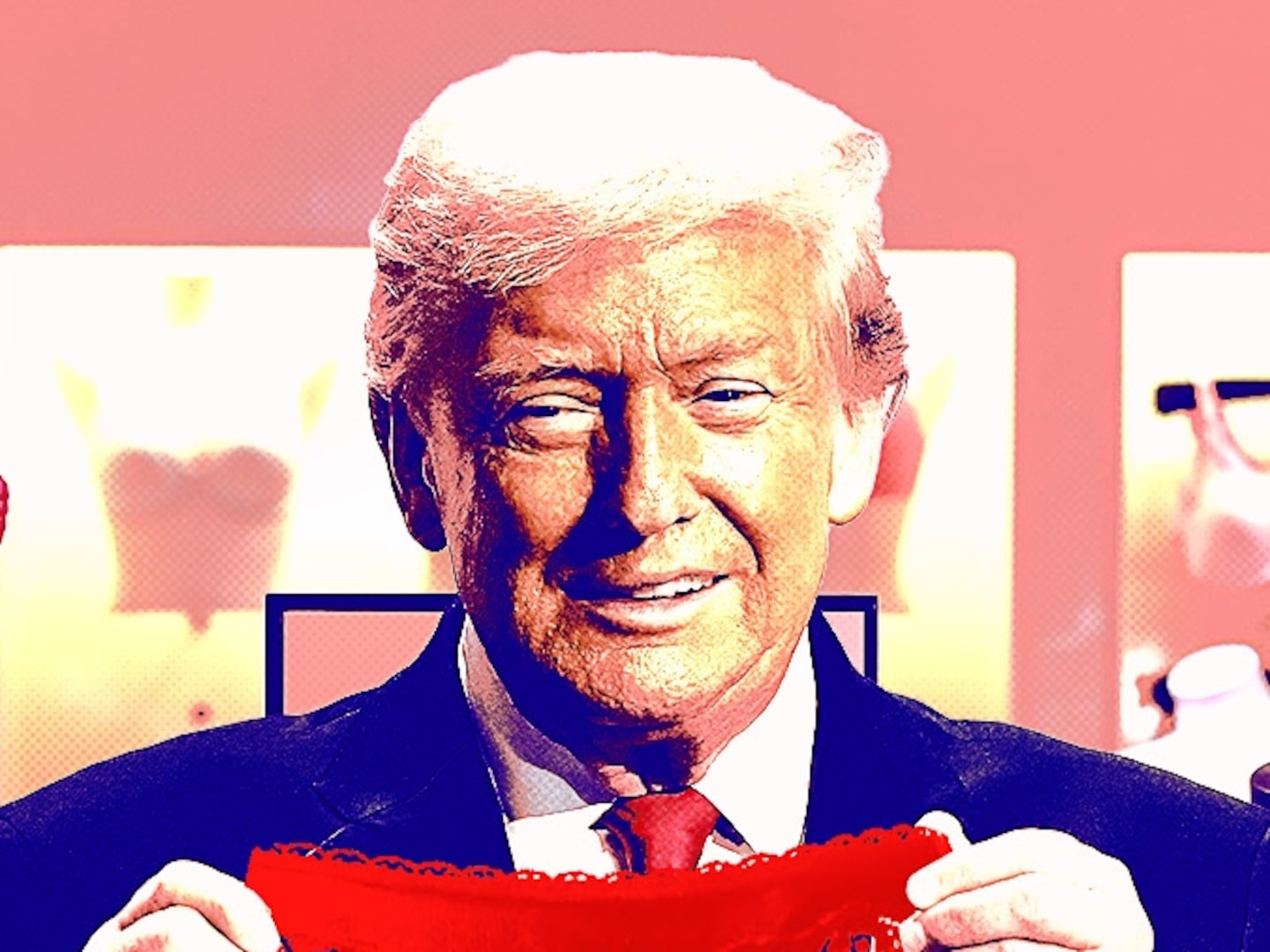Parents who wish to have their infant sons circumcised in some parts of Europe are facing increasing difficulty finding anyone who will risk criminal prosecution to perform the delicate procedure.
The debate came to a head this week when David Goldberg, an Israeli rabbi living in Germany, was charged with inflicting bodily harm for performing ritual circumcisions, which is the surgical removal of male foreskin. Goldberg, who is a mohel, or a Jewish person trained in the practice of circumcision, regularly travels throughout Germany, Switzerland, the Czech Republic, and Italy performing the procedure for Jewish families. He has not been arrested formally, but a Cologne court confirmed to The Daily Beast that he faces charges that could result in jail time and heavy fines. In late June, the Cologne court ruled that nonmedical circumcisions amount to “irreversible interference in the integrity of the human body” because the procedure is performed on nonconsenting minors who cannot object. According to the court ruling, “The minor's body is permanently and irreparably changed by the circumcision. This change conflicts with the child's interest of later being able to make his own decision on his religious affiliation.”
That ruling followed a lengthy legal battle sparked when a 4-year-old boy nearly died from a botched circumcision performed by a Muslim doctor in 2010. The child suffered hemorrhaging after a ritual circumcision and was taken by his parents to a local Cologne emergency room, according to court documents obtained by The Daily Beast. The hospital then alerted authorities and the doctor, who is referred to as Dr. K. in court documents, was investigated. He was later cleared of any wrongdoing since he was a certified medical professional and the practice of circumcision was not yet a crime, but the court ruled that in the future, circumcisions constituted an act of inflicting bodily harm, comparing the act to female genital mutilation, which is widely banned throughout Europe.
Several regions of Switzerland and Austria have also followed suit, making performing circumcisions illegal. The debate is also on the agenda in several Scandinavian countries. In Europe, around one in 10 males is circumcised, with the overwhelming majority due to religious practices. The procedure is most common among those who practice Judaism and Islam; the rest are most likely due to medical necessity.

To those who circumcise for religious purposes, the criminalization of the ritual is nothing more than religious discrimination. According to a joint statement by the Rabbinical Centre of Europe, the European Jewish Parliament, Jewish Association, and Turkish-Islamic Union for Religious Affairs, the ruling is an affront to basic religious and human rights. "Circumcision is an ancient ritual that is fundamental to our individual faiths and we protest in the strongest possible terms against this court ruling,” according to the statement. “To that end we will vigorously defend our right to maintain our mutual tradition and call on the German parliament and all political parties to intervene in overruling this decision as a matter of urgency."
Israel’s interior minister Eli Yishai worries that the decision is symptomatic of a troubling resurgence of anti-Semitism in Europe. In a letter to German Chancellor Angela Merkel, he urged her to intervene. “Treatment of Jews in Europe has changed for the worse in a most dramatic way, and anyone who can do anything about it should act," he wrote. “Jews should not have to choose between the rule of law and divine commandments, which have been followed by our people all through the ages; do not partake in the efforts to restrict Jewish traditions.”
But groups against circumcision say the ritual should only be performed once the male children are old enough to consent. The most active campaigners against circumcision are in the United States, where around 55 percent of all men are circumcised, according to the Center for Disease Control. The number of circumcisions has fallen by about 25 percent in just 20 years, despite pleas from health officials that circumcision drastically decreases the chances of contracting AIDS and sexually transmitted diseases. In an article published this month by the Archives of Pediatric and Adolescent Medicine Dr. Aaron Tobain argues that the decrease in circumcision will increase lifetime health-care costs by about 10 percent, broken down to $407 per man and $43 per woman who will have more infections and sexually transmitted diseases. “If there were a vaccine to prevent HIV acquisition, genital herpes, HPV, penile and cervical cancer, bacterial vaginosis and trichomoniasis, the medical community would rally behind this intervention as a game-changing tool to reduce sexually transmitted infections,” he wrote in a summary of the study. The World Health Organization also recommends circumcision in countries where there is a high rate of HIV and sexually transmitted infections.
But many anti-circumcision groups, which call themselves “intactivists,” argue that circumcision is a personal choice, and the decision must be made by a consenting male adult, not parents or religious leaders. Many groups, including Intact America, Stop Infant Circumcision and Doctors Opposing Circumcision maintain that the procedure is an unnecessary medical procedure that simply pads surgeons’ pockets without thought to the long-term effects many men suffer.
Earlier this month, marchers in Vancouver, Canada, argued that the right to “grow up with intact genitals” should outweigh any political, religious or medical argument. They called themselves Friends of Foreskin.






